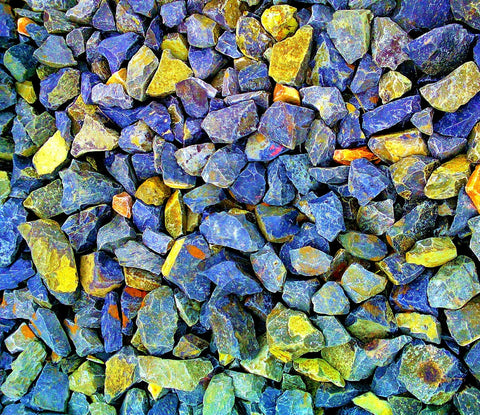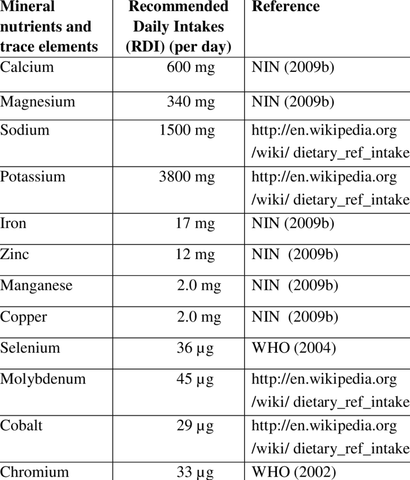
Trace minerals for hair growth
About 18 minerals out of 103 known minerals categorized as trace minerals. These are minerals vital for the human body, though in much our bodies don’t need much of them to see big results (hence the term trace).
These include iron, zinc, magnesium, manganese, copper, phosphorus, molybdenum, iodine, chromium, potassium, selenium, sodium, chloride, sulfate, and boron. Our bodies require every one of these trace minerals in proper balance to facilitate health and well-being, including hair growth
The minerals that we feel are of the utmost importance for hair growth and why:
- Iron. Iron deficiency, a condition known as anemia, is one of the main causes of hair loss, along with DHT and poor blood flow. Iron is essential for the healthy growth of your hair follicles.
- Magnesium. It balances the calcium ingested as dietary supplements and as a consequence has a key role to play in the growth of healthy hair. Its deficiency is one of the main biochemical causes of hair loss that affects the functions of thyroid, metabolism, heart nervous system, muscular and digestive system.
- Zinc. Sufficient zinc in your body is required for the division of cells in your hair follicles.
- Sulfur. It is the 8th most common element in our body. Human hair is made from an important protein called keratin, which is high in sulfur content. The presence of sulfur gives healthy hair its strength and elasticity; conversely, the absence of enough sulfur leads to brittle hair that is easily broken.
- Selenium. It has antioxidant properties, which means it helps prevent some of the damage to cells and tissues caused by free radicals.
- Copper. More on pigmentation and greying. A study on 60 people (both males and females) about premature graying shows that a reduction in iron and copper led to increased severity of greying.
- Calcium. Similarly, in the study of premature greying, reduction in calcium increased the severity of premature hair greying.
Trace minerals deficiency or overdose symptoms
Symptoms of trace minerals deficiencies or overdose (toxicity):
- Anemia (lack of iron)
- Stomach pain, nausea, and vomiting (Early symptoms of iron poisoning)
- Poor digestion, brain fog, poor appetite, and chronic fatigue (lack of magnesium/zinc)
- Nausea, diarrhea, low blood pressure, muscle weakness, and fatigue (overdose of magnesium)
- Excessive absorption of zinc can suppress copper and iron absorption.(overdose of zinc)
- Joint pain or disease (lack of sulfur)
- Nausea, vomiting, nail brittleness and discolorations, hair loss, fatigability, irritability, and foul breath odor (Acute or chronic selenium toxicity)
Interestingly, overdosing zinc (which can be found in some supplements together with Vitamin C) will impact your ability to absorb the trace minerals copper and iron. Therefore, take note of what zinc as it might confuse you about your lack of copper or iron.
Studies on Hair and Trace Minerals
The study (for trace mineral Iron, Copper, Calcium only) carried out on 60 patients with premature hair graying and 30 age-matched and gender-matched healthy individuals served as a control group. The severity was assessed by the hair whitening scoring system. Serum iron, copper, and calcium concentrations were measured using Beckman Coulter instrument and spectrophotometric method.
From "The Role of Vitamins and Minerals in Hair Loss: A Review", it summarized the role of vitamins and minerals, such as vitamin A, vitamin B, vitamin C, vitamin D, vitamin E, iron, selenium, and zinc, in non-scarring alopecia.
The review said nothing was conclusive and that "Micronutrients such as vitamins and minerals play an important, but not entirely clear role in normal hair follicle development and immune cell function."
A review on Iron was inconclusive but some authors hypothesized that "iron deficiency might change the normal progression of the hair cycle. However, whether these six genes play a role in iron-dependent processes in the hair follicle remains to be elucidated. Although not yet proven, there is a prevailing view that hepcidin upregulation diverts iron from the hair follicle to support the essential iron requirements."
A review on Selenium warned the risk of excessive Selenium. Nevertheless, a trial did state "Patients with ovarian cancer undergoing chemotherapy showed a significant decrease in hair loss and other gastrointestinal symptoms in patients receiving selenium supplementation, as compared with controls. The authors concluded that ingesting selenium is a supportive element in chemotherapy"
The review on Zinc said zinc supplementation for hair growth was also open to debate. In a double-blinded placebo-controlled trial published in 1981, zinc gluconate twice per day for 3 months did not improve hair condition after zinc supplementation. On the other hand, another study involving 15 patients who less zinc gluconate for 12 weeks showed good results in nine of the 15 subjects.
How Much Trace Minerals for Hair Growth
From ResearchGate, below are the recommended daily intakes for trace minerals and nutrients (regardless of hair conditions).

Similar to supplement, it is not necessary to overdose on trace minerals. You just need to have the minimum amount for your body to promote hair growth and prevent any side effects from overdosing.
There are also products such as ConcenTrace® that sell supplements with trace minerals. It claimed that Utah’s Inland Sea of western North America could provide a potent solution to soil-based mineral depletion.
While it is likely true that soil-based minerals are being depleted due to overfarming and industrialization, we don't feel it is necessary unless you are on a special diet that risks having insufficient trace minerals.
If you’re a vegetarian or vegan, make sure that you eat iron with vitamin C-rich foods at the same time, as this helps your body absorb more iron. Of course, vitamins like B12 is likely a must for vegan or vegetarian. Unlike trace minerals, water-soluble vitamins have little risks of overdose, since we will urinate excess out (like Vitamin C).
Focus on your diet and only add supplements to your diet if your doctor recommends.
Conclusion
Your hair needs a well-balanced diet containing vitamins and not forgetting trace minerals to ensure hair growth and prevent hair loss.
